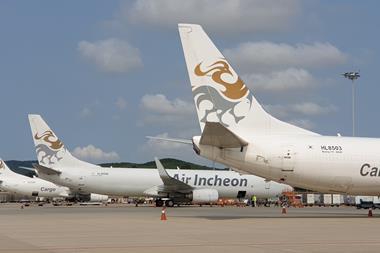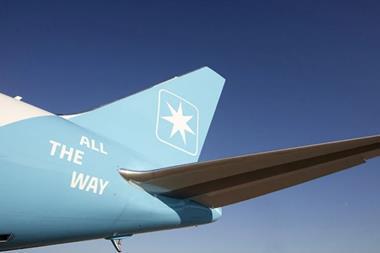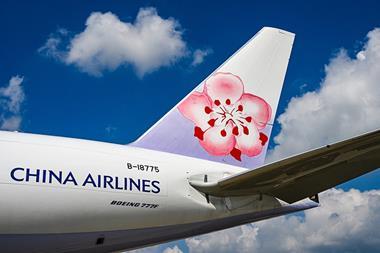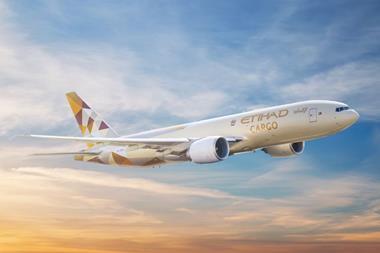Atlas Air Worldwide Holdings (AAWW) remains confident about the future supply of aircraft for freighter operations and is positive about pilot recruitment.
Speaking shortly after the aviation company announced its 2016 full-year results, AAWW president and chief executive William Flynn was asked for his outlook on aircraft feedstock, given that it was indicated recently that Amazon may in the future be looking to build a fleet of 100 aircraft of different types.
The e-commerce giant has so far signed deals to lease 40 aircraft, all of which are Boeing 767s. Atlas Air is providing 20 of the B767s, with one already in operation and a second one due to start flying this month.
The rest of the fleet is due to be in operation over the next couple of years and Flynn said it had secured all 20 aircraft and even a spare B767 aircraft as well, while conversion slots have been secured with Boeing and IAI.
“We have acquired the aircraft we need to fulfil our commitment to Amazon, we have acquired the conversion slots and are managing the conversions.
“There is a good feedstock of aircraft, and different aircraft types, depending on what the market is going to demand.
“My belief is – not being specific to any single customer – there are several companies out there that are looking at aircraft and conversions and I think the feedstock is adequate to meet the demand.”
In the run up to the release of the company’s results, pilots’ unions issued a statement suggesting that the lessor could struggle to recruit and retain enough pilots to cover its commitments to customers Amazon and DHL.
The two groups are currently in the middle of negotiations over new pilot contracts, with Atlas and Southern negotiations complicated by the merger of the two companies.
“AAWW executives are ignoring the fact that our airlines won’t be able to hire or retain enough pilots to meet the growing appetites of our key customers like Amazon and DHL,” Atlas Air pilot Michael Griffith said ahead of the results announcement.
“Atlas and Southern pilots are working under contracts that fall well below industry standards, and it should come as no surprise that we lost a record number of pilots just last month.”
However, during the results call Atlas said it had faced no issues recruiting pilots last year and felt confident about pilot recruitment for the coming two years.
“We have certainly been able to scale to meet growth across all of our asset types. We hired about 370 pilots last year across all of our aircraft types.
“We have our contract in place and we have an attractive contract in place and certainly we believe we will be able to hire the additional pilots we need in 2017 and 2018 as we grow for Amazon and our other customers.”
He added: “The contracts at Atlas became amendable in September of last year and in November of last year at Southern.
“We are in discussions with our pilots and we look forward to making progress on the contract. We have not made specific assumptions in our guidance for this year other than the contractual rates we have in place.”
Following on from the initial publication of this article, the unions were back in touch with Air Cargo News, explaining that Atlas has filed a complaint in a federal court "to force pilots at subsidiaries, Atlas Air and Southern Air, into an amalgamated contract".
The info sent over also said that the pilot attrition rate for January was double that of a year earlier.
On Twitter Griffith pointed out that collective bargaining agreement talks had not taken place since March last year.
The company was also asked about two of its B747-8s that are currently being used by its charter segment and why it was proving hard to find customers that want them on long-term ACMI deals.
“We have talked in the past about our ability to use those aircraft in charter and drive meaningful results as we did in the fourth quarter,” said Flynn.
“We do expect ultimately that B747-8s go into ACMI but I don’t think you should rule off the earnings power those aircraft have and the ability to drive the earnings power with those aircraft.”
He later added: “We are earning ACMI like returns in the charter market with the B474-8s because of the fuel efficiency they provide and the cargo carrying capacity that they have. So the B747-8s operating in charter this year were not at a discount to ACMI returns so we feel confident about the earnings power of those aircraft regardless of ACMI or charter placement.”










